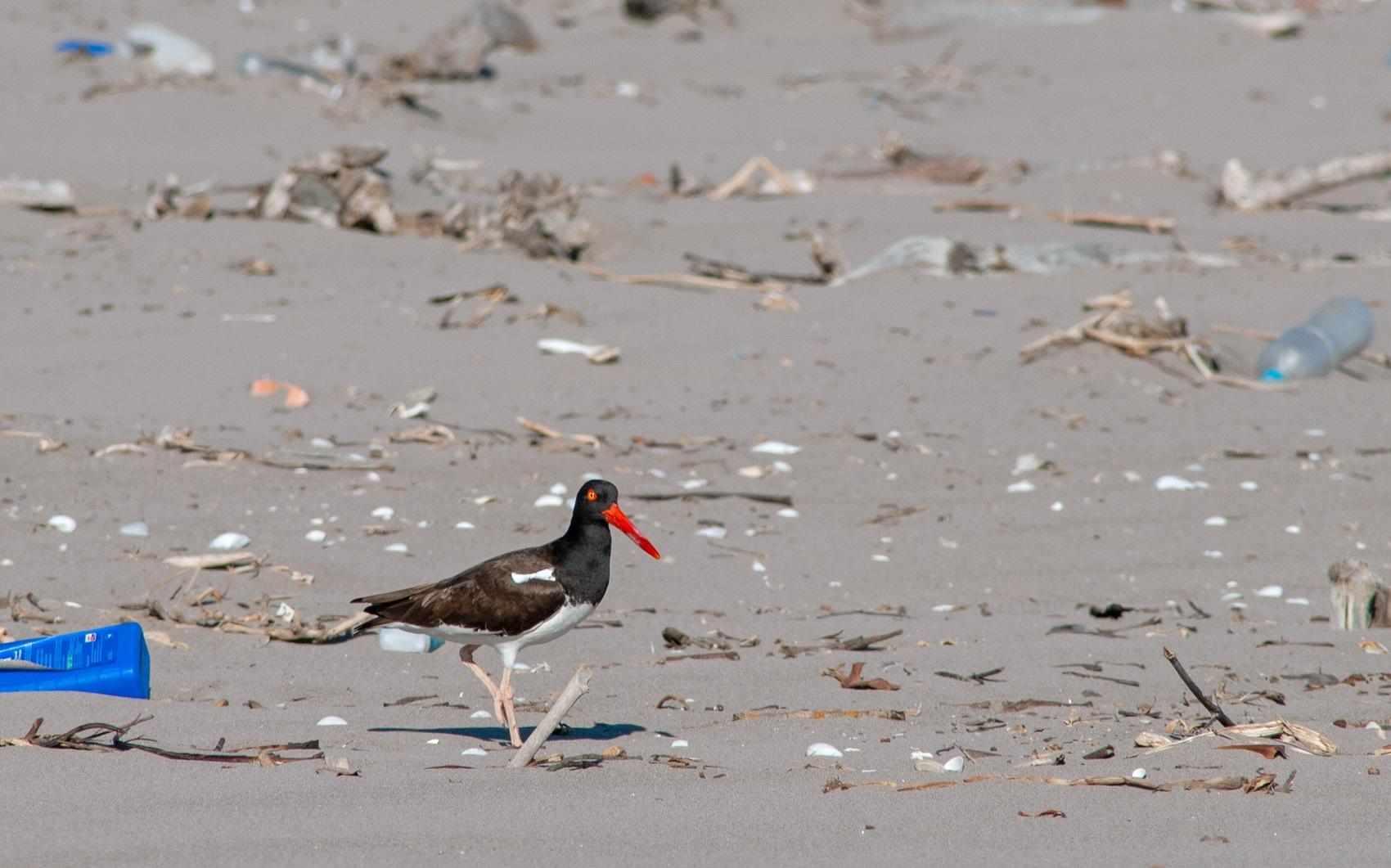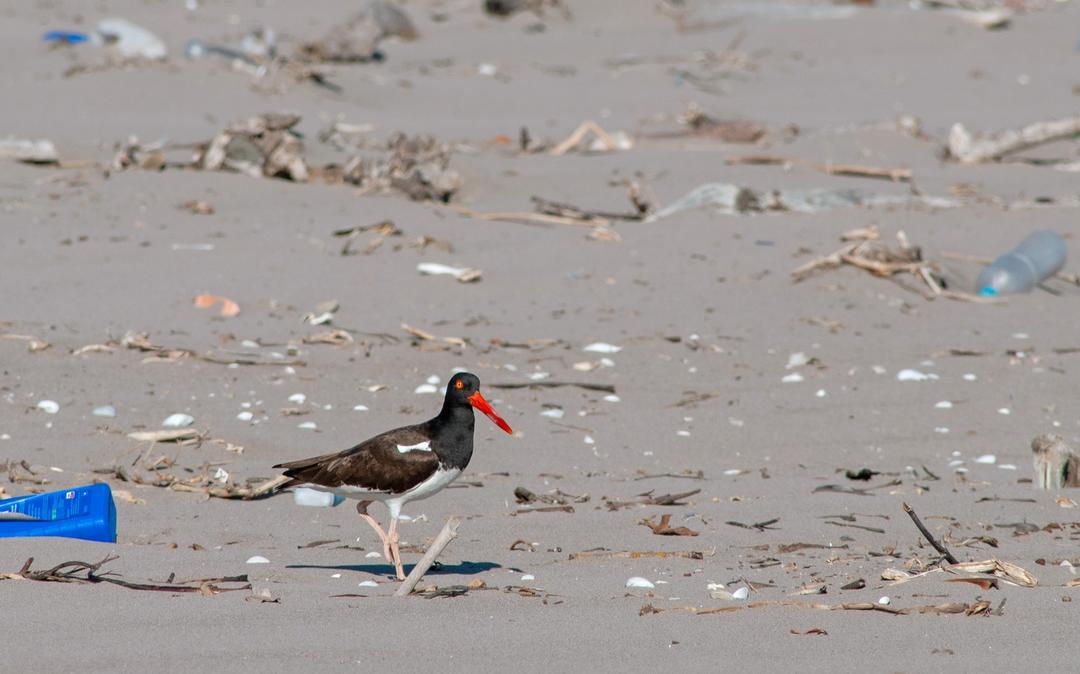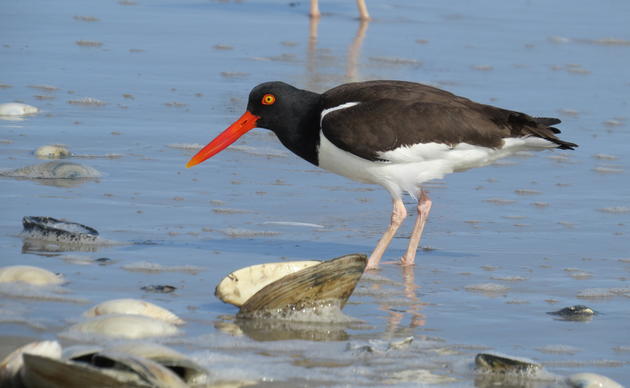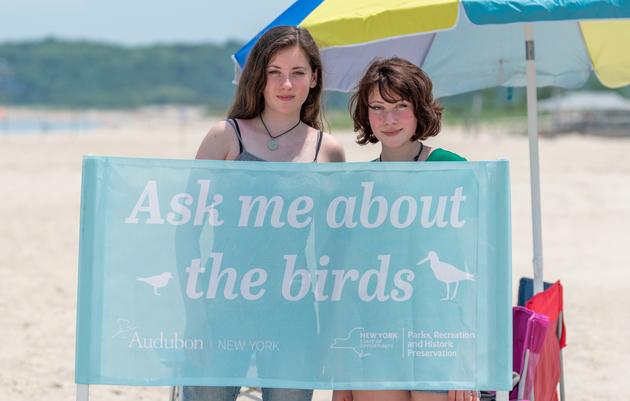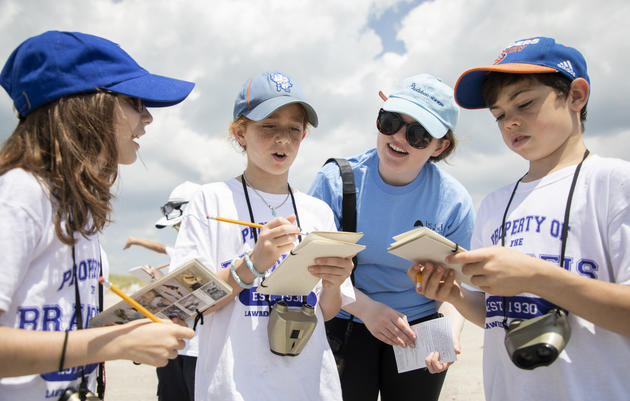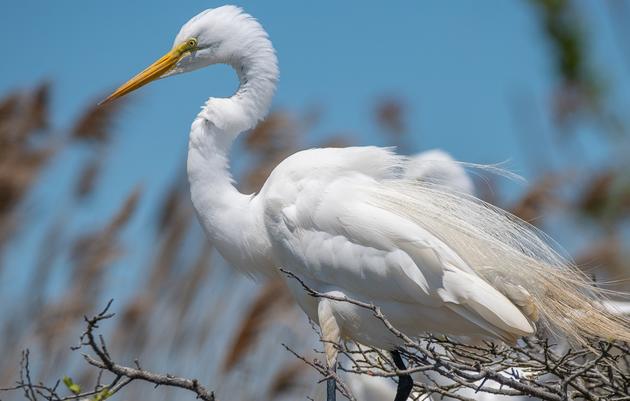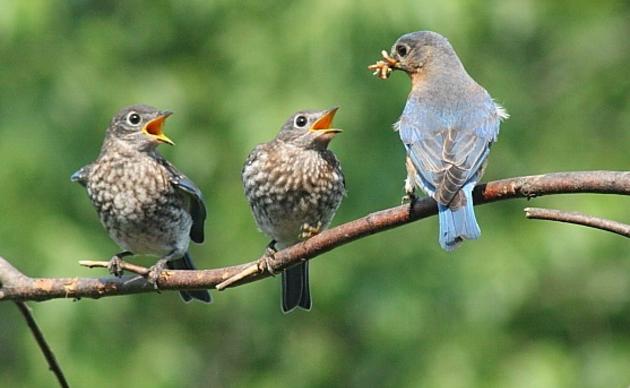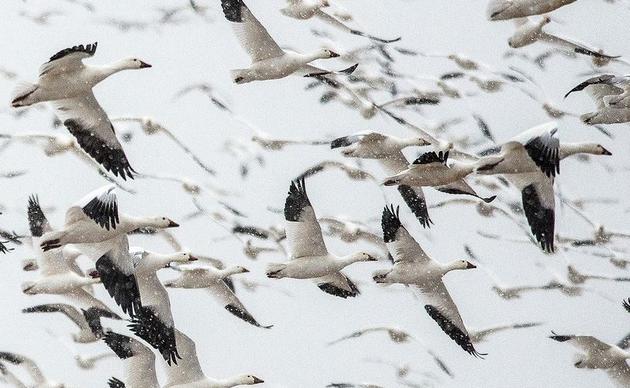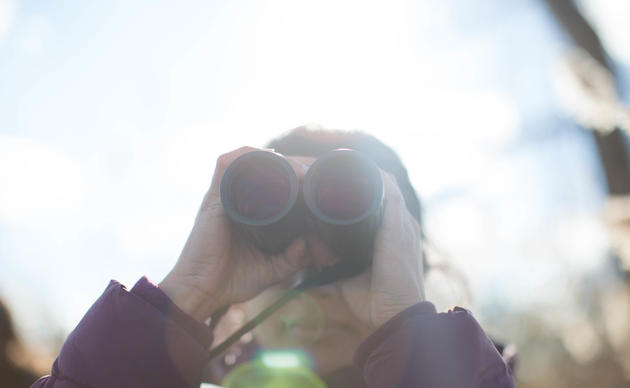The threat plastic pollution poses for our oceans is a growing concern, and one which negatively impacts marine life. Seabirds like albatross, which can accidentally ingest plastic while foraging for fish, are especially at risk. Plastic debris also affects birds much closer to home, on the coasts and even inland. American Oystercatchers have been found to ingest plastics and Ospreys are increasingly seen padding their nests with plastic debris – a sad sight in what should be a safe haven for their chicks. An Audubon beach steward volunteer recently captured a particularly disturbing photo that shows a Black Skimmer feeding a cigarette butt to its chick.
Reducing waste at the beach is one important way to avoid directly polluting the environment and harming local wildlife. Anglers can help by properly disposing of fishing line, which can entangle and kill shorebirds and seabirds; look for a monofilament recycling tube or dispose of your used fishing line and bait scraps in a securely covered trash can – out of reach of birds and other wildlife. Not an angler? There are easy steps that all beach-goers can take to become part of the plastic pollution solution.
Here are some essentials to pack for a low waste day at the beach:
- BYOB – Bring your own reusable BAG to the beach! A sturdy bag makes it easy to carry your beach towel, sunglasses, and other beach essentials. Pack at least one extra reusable bag for unexpected shopping opportunities or to hold any trash that you produce or find while beachcombing. Avoid bringing plastic bags to the beach, where they can easily blow away and wind up as litter.
- Reef-safe sunscreen – Avoid sunscreen with oxybenzone and other chemicals that can harm marine life. There are a few plastic-free sunscreen brands (such as Raw Elements) on the market but most sunscreen does come in plastic, so try to choose packaging that can be recycled.
- BYOC – bring your own CONTAINER! The easiest way to cut back on single use plastic is to always carry a water bottle, mug, or other container with you. An insulated thermos can help keep your drinks cold while you’re soaking up the sun. But, there’s no need to buy something fancy; use what you have at home! A simple bottle or even a cleaned out jam jar can be used to fill up on tap water or get plastic-free coffee to-go before you hit the beach.
- Sustainable snacks – Swimming and walking on the beach can be tiring, so be sure to pack snacks to keep you energized! Try to stay away from snacks that are individually wrapped in plastic; thick-skinned produce like avocados and oranges come with nature’s packaging, so there’s no need to bag them! Other plastic-free snack options (that can typically be found in bulk!) include trail mix and dried fruit. If possible, choose locally-produced and plant-based foods rather than animal products, since animal agriculture is a source of greenhouse gas emissions and contributes to deforestation. Divert food waste from the landfill, where they would release methane gas as they break down, by saving your food scraps and composting them at home.
- Reusable cutlery – There’s nothing better than packing a picnic and enjoying a meal in the fresh air with the sand beneath your toes. For a more sustainable beach picnic, pack reusable utensils and plates as well as food in reusable containers. Try using beeswax or fabric bowl covers to instead of plastic wrap to keep your food covered and switch to washable containers instead of plastic sandwich bags. Also, you can avoid getting packaged takeout by getting food to-go in your own reusable container or by preparing your own food ahead of time.
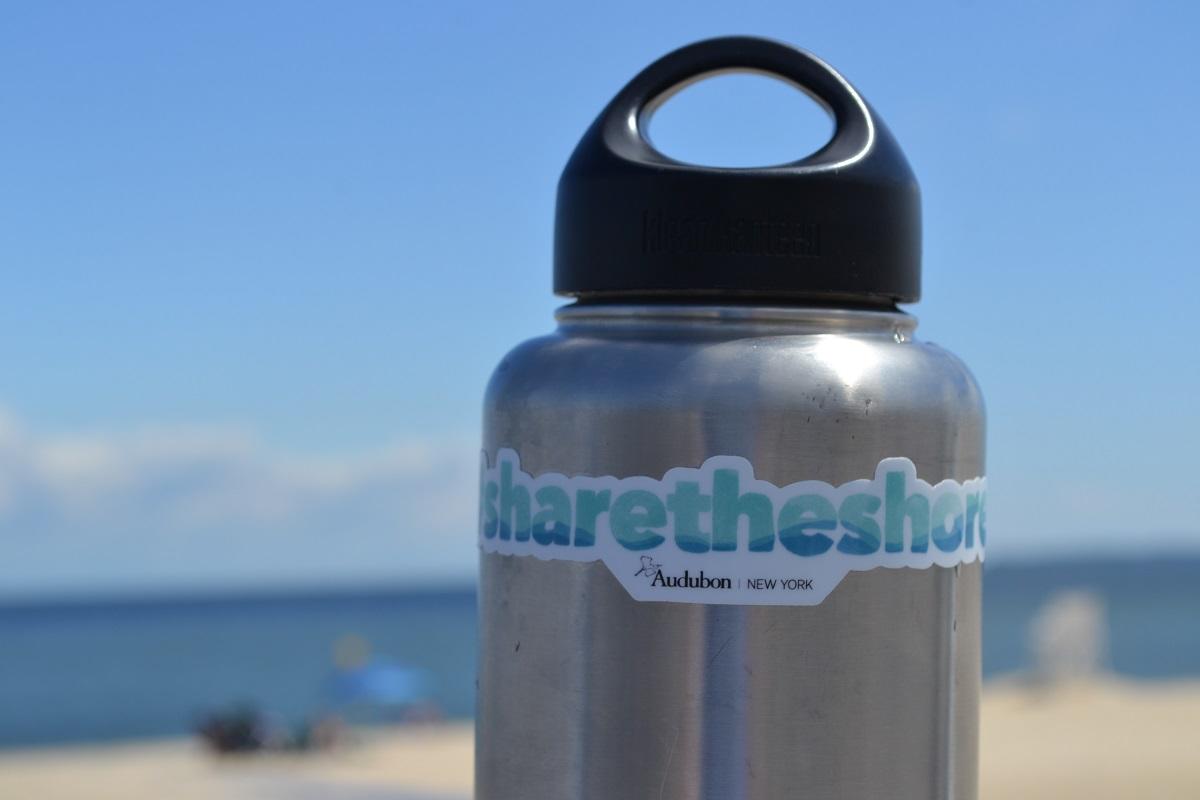
Please be sure to properly dispose of or carry out any trash you may have when leaving the beach. If you don’t see recycling bins on the beach, simply take recyclables back home with you or into the nearest town if you’re traveling. Recycling rules vary from place to place, so check the town’s website to see what’s accepted. Also, be sure to clean out and dry items before placing them in the recycling bin and don’t recycle soiled items (such as oily pizza boxes) to avoid contamination.
To get more involved, check out Audubon New York’s volunteer opportunities or join a beach clean-up in your community. Thank you in advance for helping to protect coastal birds!
Written by Amanda Pachomski, Long Island Bird Conservation Program Manager, Audubon New York
Related
'Beach Bucket Brigade' Strives to Make Beaches Cleaner, Beachgoers More Mindful
Two sisters on Long Island are channeling their love of nature to make a difference for wildlife.
How the Next Generation is Creatively Tackling Bird Conservation
Young students encourage everyone to "Be a Good Egg," by respecting wildlife at the beach.
Photographers Capture Importance of Conservation
Mike Busch and other Long Islanders are turning their love of photography into a conservation movement.
How you can help, right now
Donate to Audubon
Help secure the future for birds at risk from climate change, habitat loss and other threats. Your support will power our science, education, advocacy and on-the-ground conservation efforts.

